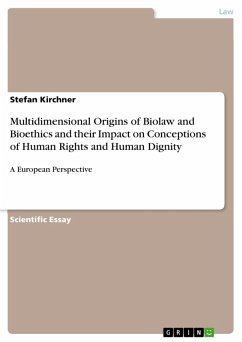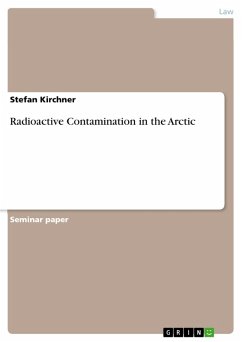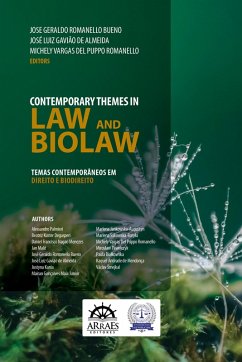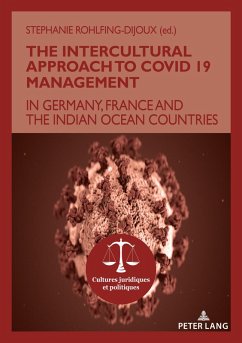
A Right to Life before Birth. Human Dignity in Biolaw - The Broken Promise? (eBook, ePUB)
Sofort per Download lieferbar
Statt: 15,95 €**
13,99 €
inkl. MwSt. und vom Verlag festgesetzt.
**Preis der gedruckten Ausgabe (Broschiertes Buch)
Alle Infos zum eBook verschenkenWeitere Ausgaben:

PAYBACK Punkte
0 °P sammeln!
Wissenschaftlicher Aufsatz aus dem Jahr 2015 im Fachbereich Jura - Rechtsphilosophie, Rechtssoziologie, Rechtsgeschichte, , Sprache: Deutsch, Abstract: The question if unborn children have a right to life is among the most hotly contested political issues in many countries. At the same time is the notion that every human being has some inalienable human rights and an inherent human dignity almost universally accepted. While the question of the right to life of the unborn child can also be dealt with as a legal, rather than a political, problem, the widespread legal availability of abortion als...
Wissenschaftlicher Aufsatz aus dem Jahr 2015 im Fachbereich Jura - Rechtsphilosophie, Rechtssoziologie, Rechtsgeschichte, , Sprache: Deutsch, Abstract: The question if unborn children have a right to life is among the most hotly contested political issues in many countries. At the same time is the notion that every human being has some inalienable human rights and an inherent human dignity almost universally accepted. While the question of the right to life of the unborn child can also be dealt with as a legal, rather than a political, problem, the widespread legal availability of abortion also in states which emphasize the importance of human dignity as a legal concept, exposes a disconnection between national and international biolegal claims and the implementation of biolaw on the national level. Looking at the European Convention on Human Rights and Germany's Constitution, which is famous for opening with a commitment to human dignity, it will be shown that human dignity does indeed matter as a legal concept and that human rights are at a more general risk, if this concept is given up easily.
Dieser Download kann aus rechtlichen Gründen nur mit Rechnungsadresse in A, B, BG, CY, CZ, D, DK, EW, E, FIN, F, GR, HR, H, IRL, I, LT, L, LR, M, NL, PL, P, R, S, SLO, SK ausgeliefert werden.













